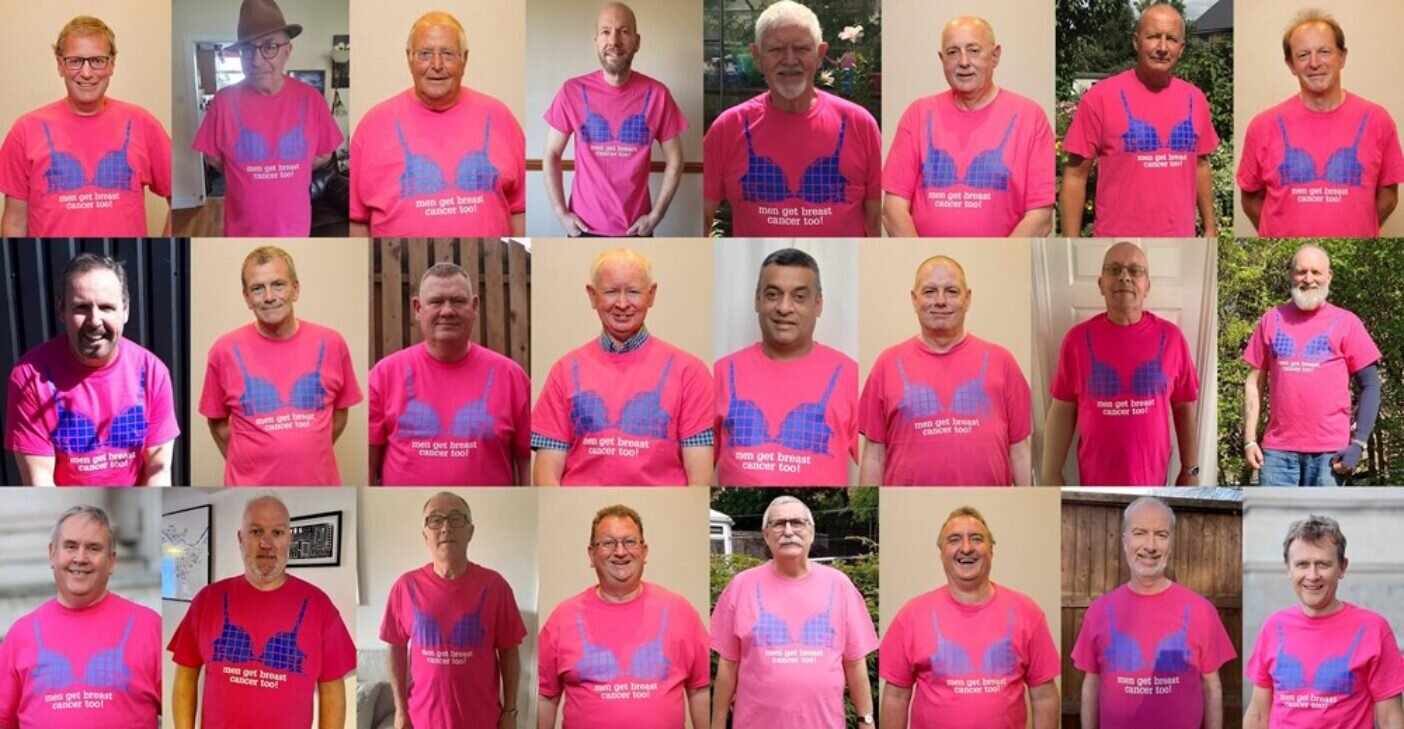The Facts…
- There is currently very little research, and no routine screening specifically for men, so most male breast cancers are found by self-checking their chest, or just noticing changes.
- Male breast cancer affects between 370 – 400 men a year in the UK, however over 80 men a year die from breast cancer due to not knowing men can get this type of cancer, and not doing regular checks.
- Breast cancer usually affects men aged 50 and over, but it can be found in men of any age.
UK Monthly Virtual Meet-Up – The Men’s VMU
The Men’s VMU is a fantastic opportunity for men who have had breast cancer to “meet” and talk about things that are important and unique to them. This resource is peer-led, run by and for men affected by breast cancer – for further information email [email protected] or Tweet @TheMensVMU
The Virtual Meet-up is held on the fourth Thursday of each month at 7.00pm (19:00) UK time.
Print a poster and display in your local gym, pub, or anywhere else you think it will make a difference… help us spread the word!

Men Get Breast Cancer Too Project
We are proud to have helped Breast Cancer Now scientists to conduct the largest study of its kind into the causes of male breast cancer. We are also delighted to be working with experts in male breast cancer who we are able to call on for information and advice.
Dr Kerry Quincey… is a Senior Lecturer and Researcher in the Institute of Psychological Sciences at De Montfort University, Leicester. Her Psychology PhD was based on research into male breast cancer, specifically men’s experiences of living with and beyond a breast cancer diagnosis. Kerry is passionate about continuing to support men who have had breast cancer and to help raise awareness
Professor Valerie Speirs… is Professor of Molecular Oncology at the University of Aberdeen. As a cancer biologist, one of her main research interests is in understanding the biology of male breast cancer. She has been studying this for several years and has established one of the largest collections of male breast cancer in the world. This has been used to identify genes and proteins which are found in different levels in male breast cancer, and which may be exploited for therapeutic benefit. There are no good laboratory models of male breast cancer, currently and she has been working to try and establish these in her lab.
Research
Walk the Walk is proud to have previously made a grant to help Breast Cancer Now scientists conduct the largest study of its kind into the causes of male breast cancer. The study, led by Professor Anthony Swerdlow, is continuing today and is helping to increase our knowledge and understanding of breast cancer in men.
Over 1,000 men who have been diagnosed with breast cancer are participating in the Breast Cancer Now Male Breast Cancer Study, as well as over 1,000 men without the disease. Each participant has provided blood samples for DNA analysis and has answered detailed questionnaires about their lifestyle and medical history. This information is helping researchers to uncover the genetic, environmental and lifestyle causes of breast cancer in men.
The latest findings from the study (published in August 2020) are a major step forward in the understanding of male breast cancer. Scientists now know that the disease has a similar genetic basis in men and women. In particular, they have discovered three new genetic variants running in families, which increase the likelihood of breast cancer in men more than in women. The findings could lead to the development of a test, to more precisely determine the risk of breast cancer in men that are at higher risk due to changes in the BRCA2 gene.
Dr Kotryna Temcinaite, Research Communications Manager at Breast Cancer Now, the research and care charity, said:
From a research perspective, we know a lot less about breast cancer in men than we do about the disease in women. Since breast cancer in men is rare, it makes it difficult to collect tissue or blood samples on the same scale as we have seen for women, making research harder to conduct.
“We are incredibly grateful to Walk the Walk for their past funding of the Breast Cancer Now Male Breast Cancer Study, which is helping to advance our understanding of the disease in men. It will help us identify who might be at a higher risk and what can be done to lower their chances of developing the disease.”
Collaborating charities…
In the true sense of “collaboration” Walk the Walk is delighted to work with the following charities who all provide their expertise, education, support and counselling for men with breast cancer and their families.


